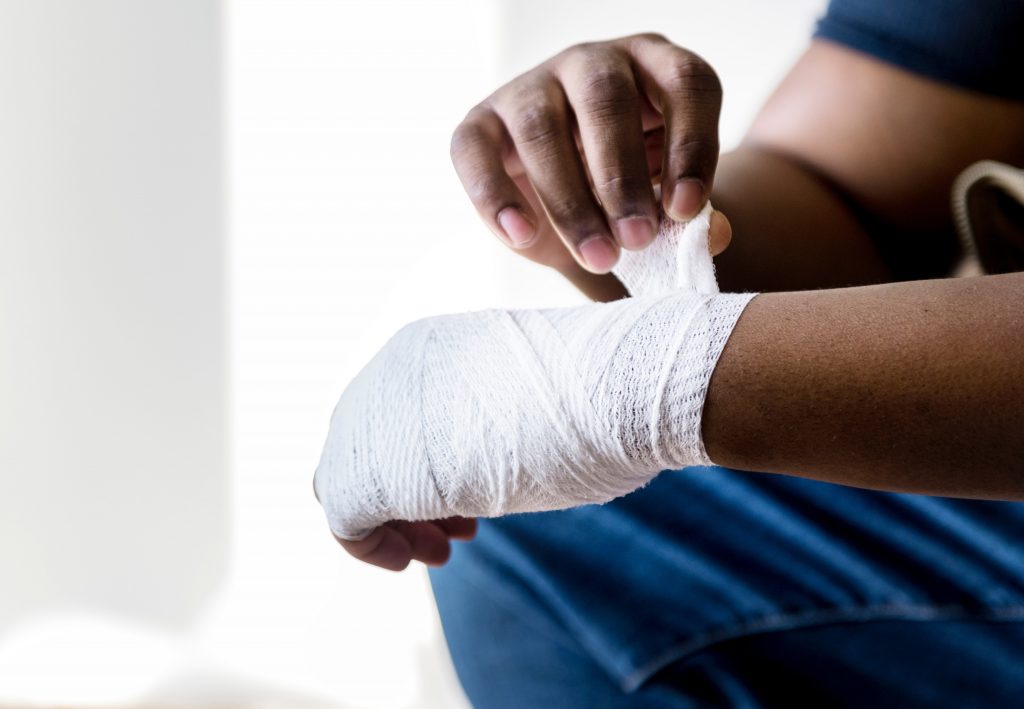 Imagine coming home one day to discover your beloved pet is missing. Typically in this scenario, we would expect the judicial system to act in our favor if we know who the culprit is. This can be difficult across state lines, and even when the court is on your side, collecting on the ruling may not be so easy. It’s even more difficult if the court fails in legally required procedures of the case. In this case we are left with the question: what do you do when someone refuses to return your dog to you?
Imagine coming home one day to discover your beloved pet is missing. Typically in this scenario, we would expect the judicial system to act in our favor if we know who the culprit is. This can be difficult across state lines, and even when the court is on your side, collecting on the ruling may not be so easy. It’s even more difficult if the court fails in legally required procedures of the case. In this case we are left with the question: what do you do when someone refuses to return your dog to you?
This case started when Kiley Wolfe’s mother, Janet Leland, deliberately took Wolfe’s dog, Daisy Mae, from Wolfe’s home in Baton Rouge, Louisiana. Leland took Daisy Mae back to her home in Florida. Despite Wolfe’s cordial requests, Leland refused to return Daisy Mae to Wolfe. Wolfe sued Leland seeking the return of Daisy Mae and damages, and the suit was personally served to Leland through a private process server.
About a month later, Leland filed a motion requesting an additional forty-five days to seek legal counsel. The district court granted Leland an additional fifteen days to file a responsive pleading, but Leland failed to file an answer to Wolfe’s petition. The Louisiana District Court granted a preliminary default against Leland but did not notify her of the preliminary default. Subsequently, the preliminary default judgment was confirmed, and the default judgment was rendered. The default judgment ordered Leland to return Daisy Mae to Wolfe and awarded her damages. Leland appealed this stating the default judgment was invalid because statutory procedures were not followed. Even though Leland made an appearance on record when she filed for a motion to extend, she was not given any notice of the default judgment.
 Louisiana Personal Injury Lawyer Blog
Louisiana Personal Injury Lawyer Blog


 Summary judgment is a legal procedure courts may use to dispose of a case when there are not enough facts in dispute to proceed with a lawsuit. This is a good strategy to use when applicable because it purges certain claims that have no merit, saving time and money. The Fifth Circuit Court of Appeal demonstrated the principles of summary judgment within the context of an employment discrimination lawsuit when it comes to untimely filing.
Summary judgment is a legal procedure courts may use to dispose of a case when there are not enough facts in dispute to proceed with a lawsuit. This is a good strategy to use when applicable because it purges certain claims that have no merit, saving time and money. The Fifth Circuit Court of Appeal demonstrated the principles of summary judgment within the context of an employment discrimination lawsuit when it comes to untimely filing.  Having surgery is always a stressful situation. Nobody wants to leave the hospital only to return a short time later from complications due to the first surgery. This is unfortunately what happened to Mr. James Nelson, who sued his surgeon, Dr. F, in East Baton Rouge Parish. So, what happens when you develop a new medical condition after your surgery?
Having surgery is always a stressful situation. Nobody wants to leave the hospital only to return a short time later from complications due to the first surgery. This is unfortunately what happened to Mr. James Nelson, who sued his surgeon, Dr. F, in East Baton Rouge Parish. So, what happens when you develop a new medical condition after your surgery? When you ask a friend for a favor, whether it is for a ride to the airport or for help cleaning up a room, you never expect that you will end up facing off against each other in a lawsuit. However, when you do end up in such an unfortunate situation, it is important to have a good lawyer on hand to ensure that the dispute is resolved in the quickest manner possible. Michael P. Cox found himself in just such a situation when his friend Laina Dutton offered to help him clean out the building of his recently closed business, Xtreme Nutrition, located in Baton Rouge, Louisiana. When Mr. Cox was out of the room, Ms. Dutton decided to climb a ladder and remove a banner that was hanging on the wall. The ladder was not in a secure location and Ms. Dutton fell backward off the ladder injuring her back and side. She sued Mr. Cox, Xtreme Nutrition, and Allstate Insurance, the insurer for Mr. Cox and Xtreme Nutrition. Ms. Dutton’s lawsuit for negligence was premised on the argument that Mr. Cox owed her a duty to erect the ladder safely, monitor and assist her in the use of the ladder, and warn her of any danger in using it. She argued that the ladder had been set up in a dangerous manner because it was not placed on a flat surface, that Mr. Cox did not warn her of this issue, and that he was at fault for her fall due to his inattentiveness. Ms. Dutton suffered injuries to her arm, back, and spine. For these injuries, she sought special and general damages.
When you ask a friend for a favor, whether it is for a ride to the airport or for help cleaning up a room, you never expect that you will end up facing off against each other in a lawsuit. However, when you do end up in such an unfortunate situation, it is important to have a good lawyer on hand to ensure that the dispute is resolved in the quickest manner possible. Michael P. Cox found himself in just such a situation when his friend Laina Dutton offered to help him clean out the building of his recently closed business, Xtreme Nutrition, located in Baton Rouge, Louisiana. When Mr. Cox was out of the room, Ms. Dutton decided to climb a ladder and remove a banner that was hanging on the wall. The ladder was not in a secure location and Ms. Dutton fell backward off the ladder injuring her back and side. She sued Mr. Cox, Xtreme Nutrition, and Allstate Insurance, the insurer for Mr. Cox and Xtreme Nutrition. Ms. Dutton’s lawsuit for negligence was premised on the argument that Mr. Cox owed her a duty to erect the ladder safely, monitor and assist her in the use of the ladder, and warn her of any danger in using it. She argued that the ladder had been set up in a dangerous manner because it was not placed on a flat surface, that Mr. Cox did not warn her of this issue, and that he was at fault for her fall due to his inattentiveness. Ms. Dutton suffered injuries to her arm, back, and spine. For these injuries, she sought special and general damages.  For any legal claim, there is a set period of time for which the claim must be brought. This set period of time is known as a statute of limitations, which can vary based on the type of claim. If a claim is not filed prior to the expiration of the statute of limitations, the right to bring the claim is extinguished. Furthermore, if an attorney was retained to bring the claim and failed to do so in a timely manner, the attorney may be sued for malpractice. So, in Louisiana can you sue your lawyer for not filing your claim on time?
For any legal claim, there is a set period of time for which the claim must be brought. This set period of time is known as a statute of limitations, which can vary based on the type of claim. If a claim is not filed prior to the expiration of the statute of limitations, the right to bring the claim is extinguished. Furthermore, if an attorney was retained to bring the claim and failed to do so in a timely manner, the attorney may be sued for malpractice. So, in Louisiana can you sue your lawyer for not filing your claim on time? Summary judgment is a judgment entered by a court for one party and against another party without a full trial. More specifically, summary judgment may be granted where the legal claim or cause of action can be decided upon certain facts without a trial. Can you receive summary judgement in a negligence case against a squat machine manufacturer?
Summary judgment is a judgment entered by a court for one party and against another party without a full trial. More specifically, summary judgment may be granted where the legal claim or cause of action can be decided upon certain facts without a trial. Can you receive summary judgement in a negligence case against a squat machine manufacturer? A non-compete agreement often takes the form of a clause in an employment contract whereby an employer seeks to restrict a former employee’s ability to compete with the employer after the employment relationship is terminated. These types of clauses are usually valid if they are reasonable in scope, time, and area and line of business. But, what happens happens when someone ignores a non-compete agreement in Louisiana?
A non-compete agreement often takes the form of a clause in an employment contract whereby an employer seeks to restrict a former employee’s ability to compete with the employer after the employment relationship is terminated. These types of clauses are usually valid if they are reasonable in scope, time, and area and line of business. But, what happens happens when someone ignores a non-compete agreement in Louisiana? The state is not a guarantor of the safety of motorists using their roads, meaning you must be vigilant and careful while driving.
The state is not a guarantor of the safety of motorists using their roads, meaning you must be vigilant and careful while driving.  What happens when a verdict that the employee is entitled to Workers’ Compensation Benefits has been handed down by the Office of Workers’ Compensation, but the awarded medical benefits have not and are not being paid? Generally, an employee will move for penalties and attorney fees to be imposed on the employer or its insurer for failure to pay the benefits. Under Louisiana law, awarded medical benefits must be paid within sixty days of the employer or insurer receiving notice that the employee has been awarded medical benefits.
What happens when a verdict that the employee is entitled to Workers’ Compensation Benefits has been handed down by the Office of Workers’ Compensation, but the awarded medical benefits have not and are not being paid? Generally, an employee will move for penalties and attorney fees to be imposed on the employer or its insurer for failure to pay the benefits. Under Louisiana law, awarded medical benefits must be paid within sixty days of the employer or insurer receiving notice that the employee has been awarded medical benefits.  What happens with Workers’ Compensation Benefits when you are still able to work, but cannot make your pre-injury wage? Are you entitled to the difference in pre-injury and post-injury wages? Or are you out of luck? Supplemental earning benefits (“SEB”) are paid at two-thirds of the difference between what a person earned before their on-the-job injury and after their on the job injury, whether working or not. SEB’s are available to an individual who was injured at work and is unable to earn at least 90 percent of their pre-injury salary due to the injury.
What happens with Workers’ Compensation Benefits when you are still able to work, but cannot make your pre-injury wage? Are you entitled to the difference in pre-injury and post-injury wages? Or are you out of luck? Supplemental earning benefits (“SEB”) are paid at two-thirds of the difference between what a person earned before their on-the-job injury and after their on the job injury, whether working or not. SEB’s are available to an individual who was injured at work and is unable to earn at least 90 percent of their pre-injury salary due to the injury.